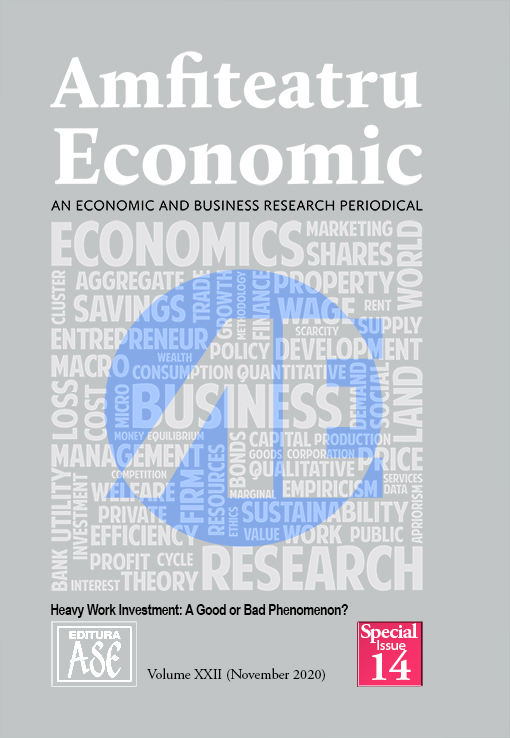The Impact of National Culture on Employees' Attitudes Toward Heavy Work Investment: Comparative Approach Romania vs. Japan
The Impact of National Culture on Employees' Attitudes Toward Heavy Work Investment: Comparative Approach Romania vs. Japan
Author(s): Ion Popa, Simona Cătălina Ștefan, Cătălina Florentina Albu, Ștefan Cătălin Popa, Cristian VladSubject(s): Human Resources in Economy
Published by: EDITURA ASE
Keywords: heavy work investment; motivation; culture; job satisfaction; work performance; Romania; Japan
Summary/Abstract: This paper aims to study the heavy work investment’s association with different forms of motivation, as well as the positive or negative effects of this investment on a personal and professional level, in the context of two very different national cultures: Romania and Japan. A questionnaire-based survey involving 822 employees in both Romania and Japan was carried out for data collection. The main results, obtained through structural equation modeling, suggest that intrinsic motivation could lead Romanian and Japanese employees to increase their investment of time and effort in work. On the other hand, the intensity of work will be positively reflected in their job satisfaction and professional performance and will lead to reduction in work-family conflict and turnover intention, while the massive investment of time will have opposite consequences. All these relationships are statistically different for employees in Romania and Japan, thus supporting the moderating effect of national culture. These results could be useful to both employees and managers in Romania and Japan to decide on the time and effort should be invested in work, considering both their positive and negative effects for employee and organization.
Journal: Amfiteatru Economic
- Issue Year: 22/2020
- Issue No: SI 14
- Page Range: 1014-1029
- Page Count: 16
- Language: English

